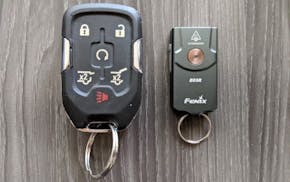Q: I have two cars with ABS — a 1999 Buick Regal and 2013 Toyota Corolla. I am wondering if ABS is really the best way for stopping on an icy road. This past week I had several occasions where I tried to stop as I approached a stop sign, but when applying and maintaining brake pressure the ABS engaged but did little to stop the car as I kept sliding. Then I did the old-fashioned pumping of the brakes with much better results! The ABS seemed to not work well on icy roads compared to the pumping technique. Is this only my experience or am I using ABS incorrectly?.
A: Considering that antilock braking systems are capable of recognizing wheel lockup and modulating/releasing hydraulic pressure to restore rotation of the wheel many times per second — much, much faster than the human foot can accomplish — ABS should be more effective than pumping the brakes in slippery conditions.
But there may be mitigating factors. First, if the anxiety of not stopping as quickly as the situation warrants causes the driver to continue to press harder and harder on the brake pedal, the ABS tends to cycle more slowly because of the much larger releases of hydraulic pressure required to restore wheel rotation. These much deeper modulations will increase stopping distance measurably.
Recognize what provides the "best" stopping traction on ice — it's that moment just before and as the wheel/tire begins to lock up. At that instant the tread blocks on the tire surface are at the edge of their maximum traction, just before sliding. Since the ABS system can recognize and release hydraulic pressure at that precise moment much faster than the human foot, ABS should stop better on ice.
Is it possible the pumping action can be more effective? Not in my experience, but perhaps in a scenario where the locked wheel/tire is actually melting the ice under the tread. This is entirely speculative on my part — just trying to envision a scenario where pumping the brakes might be more effective.
But here's the bottom line. Neither ABS nor pumping the brakes can overcome the laws of physics. Experiencing either action is confirmation of going too fast and/or braking too late for existing conditions. On glare ice, I still want an ABS system to minimize the consequences of my mistake.
Q: I have a 2014 Hyundai Sonata. Since I purchased it the catalytic converter makes a ticking noise when it gets hot. I had a previous 2012 Sonata that never had this issue — any thoughts?
A: The ticking sound from the exhaust as it cools down is completely normal. The sound is generated by the extraordinarily hot metal in the forward sections of the exhaust, including the converter and its heat shield, contracting as it cools. No worries. And I think you'll find that this ticking during cooldown will fade as you accumulate more miles on the vehicle.
Q: How does really cold weather affect hybrid vehicles? I am thinking of buying one but not if they don't work well in really cold weather. Also, what if I go south in the winter — can my hybrid just sit in the garage for several weeks without any problem?
A: With a gas/electric vehicle, expect to see more "gas" operation in cold weather. More energy is needed to operate the vehicle and warm its interior. So the car will likely rely more heavily on its internal combustion engine and use more fuel. But even with the lower efficiency and reduced "hybrid benefits," the vehicle will still "work" reliably. And parking a hybrid for weeks, even months, won't be any more of an issue than with a conventional vehicle.

Motormouth: Oil type not an issue



